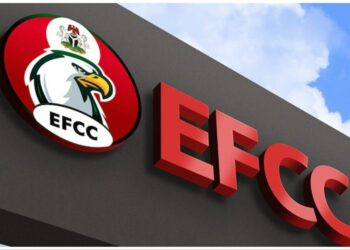 The Manufacturers Association of Nigeria (MAN) has urged the Federal Government to support its Electrical and Electronics Sectoral Group with policies that will discourage unbridled inflow of used and smuggled electrical and electronics products to the country.
The Manufacturers Association of Nigeria (MAN) has urged the Federal Government to support its Electrical and Electronics Sectoral Group with policies that will discourage unbridled inflow of used and smuggled electrical and electronics products to the country.
MAN made the appeal in its review of the December 2018 Purchasing Managers’ Index (PMI) report of the Central Bank of Nigeria, which has specific focus on the performances of sectoral groups within the manufacturing sector.
The News Agency of Nigeria (NAN) reports that PMI provides vital information on the current status of manufacturing sectoral groups that could aid quality operational and diversification decisions.
It noted that the report revealed improved performances across the sectoral groups except for Electrical and Electronics Sectoral Group.
“Although, the performance of Electrical and Electronics Sectoral Group recorded above 50 points benchmark, its basis point contracted by 6.7 points owing mainly to the menace of smuggling and counterfeiting that has continually plagued its performance,’’ MAN said.
The association noted that the Textile Apparel and Footwear Sectoral Group (TAFSG) recorded the most significant improvement with a positive change of 13.9 points.
MAN attributed the improved performance of the group in recent times to a number of factors, which include fiscal support, improved local patronage and incentives for cotton growers.
It said: “Others are increasing access to development finance windows and the recent approved concessional gas pricing mechanism. All these factors aided productivity of the TAFSG sector.’’
“In performance ranking, the TAFSG was followed closely by Motor Vehicle & Miscellaneous Assembly Group (MVMAG) with 12.5 points increment.
“This is, however, surprising because in real terms, the MVMAG was reported to have recorded increase in basis points without a virile auto component allied industry.
“With the prevailing low patronage of locally-assembled automobiles and the obvious abuse of some provisions of the Automotive Policy by some portfolio investors, which indirectly aids importation of fully assembled automobiles to the detriment of locally-assembled vehicles.’’
The association said that for the last two months of 2018, all indices – supplier delivery time, raw material inventory, production level, new orders and employment level; used in measuring PMI, recorded improved performance.
“A development that indicates that the manufacturing sector is on the path of sustainable growth.
“Undoubtedly, the improved economic spending that characterises the festive period and increasing tempo of patronage of made-in-Nigeria products have spurred the performance of the sector in December.
“In broad terms, the report revealed relative improvement in manufacturing sector performance, attributable to increasing support for manufacturing, fairly improved environment and the efficacy of the prevailing economic policies aimed at stabilising the economy,’’ MAN said.
Notwithstanding, it said that the manufacturing sector was still faced with myriad of challenges, ranging from infrastructure deficit, multiplicity of taxes, policy contradictions, exorbitant cost of clearing and transporting raw materials from the ports to factories.
According to the association, others are poor access to Lagos ports, weak port infrastructure, increasing smuggling and counterfeiting.
“These challenges have jointly constrained the manufacturing sector from attaining its full growth potential,’’ it said.
MAN said it was noteworthy that for two consecutive months, no sectoral group recorded below 50 points benchmark, which indicated a reasonable level of improvement in the manufacturing sector’s performance and a pointer to a good outing in the last quarter of 2018.









